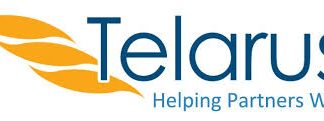To connect to the Internet and provide broadband applications, wireless operators, rural providers and competitive wireline carriers for years have had to lease special access lines from the big incumbents: i.e., AT&T Inc., Verizon Communications Inc., and smaller ILECs such as Windstream. Their wholesale customers buy at pre-set rates that are subject to governance by the Local Regulatory Commission, but many say the constricted ownership profile in the special-access market hinders competition, causes real harm to American consumers and businesses and stifles investment and innovation.
The assets are relics of the Ma Bell era and, as one might imagine, have been a big cash cow for the RBOCs despite being legacy technology. The FCC estimates that the revenue comes in somewhere between $12 billion and $18 billion per year – hardly negligible chump change.
A big portion of that is paid by wireless carriers such as Sprint-Nextel and T-Mobile USA, followed by competitive carriers looking to sell business services to enterprises. In fact, leasing the last mile from the ILEC is often the only way to deliver competitive broadband service and applications like Ethernet to enterprises, and in certain industries, such as oil and gas, locations are remote and connected by only one option. These realities give the ILECs far too much power over the delivery of services.
When it comes to mobility, the RBOC advantages magnify further. They may have radio-access competition, but AT&T and Verizon’s wireless arms – No. 2 and No. 1 in market share, respectively, controlling 70 percent of the mobile market – have a built-in margin advantage on their own services vis a vis their smaller rivals, because they already own that backhaul link between wireless towers and the core network.
The result of all of this is higher broadband pricing, both wireline and wireless, for the customer and wholesale partners.
But in a decision that left competitive operators rejoicing, the FCC recently issued an order to halt the deregulation of special access circuits, those key pieces of broadband infrastructure that provide dedicated last-mile links between, say, a cellular base station or a hospital and the IXC long-haul network. If competitors have their way, next year could see a complete overhaul of the pricing structure for the last mile, paving the way for more affordable broadband business services.
“Based on the record and the undisputed finding that legacy regulations are not working as intended, we temporarily suspend outdated rules that not only allow incumbent carriers to raise prices in the absence of competition, but also deny them the flexibility to lower prices in the presence of competition,” said FCC Chairman Julius Genachowski. “We do this as we determine what permanent rules would best promote a healthy competitive marketplace.”
The stakes are very high for competitive carriers. “The ILECs’ unchallenged control of these high-capacity broadband lines continues to harm U.S. businesses and consumers to the tune of at least $10 billion annually in over-charges, with profit margins over 100 percent to these monopoly service providers every year that this failed marketplace is allowed to persist,” Sprint said in a statement in support of the FCC’s decision.
Read the full CV report from the October issue, here.









